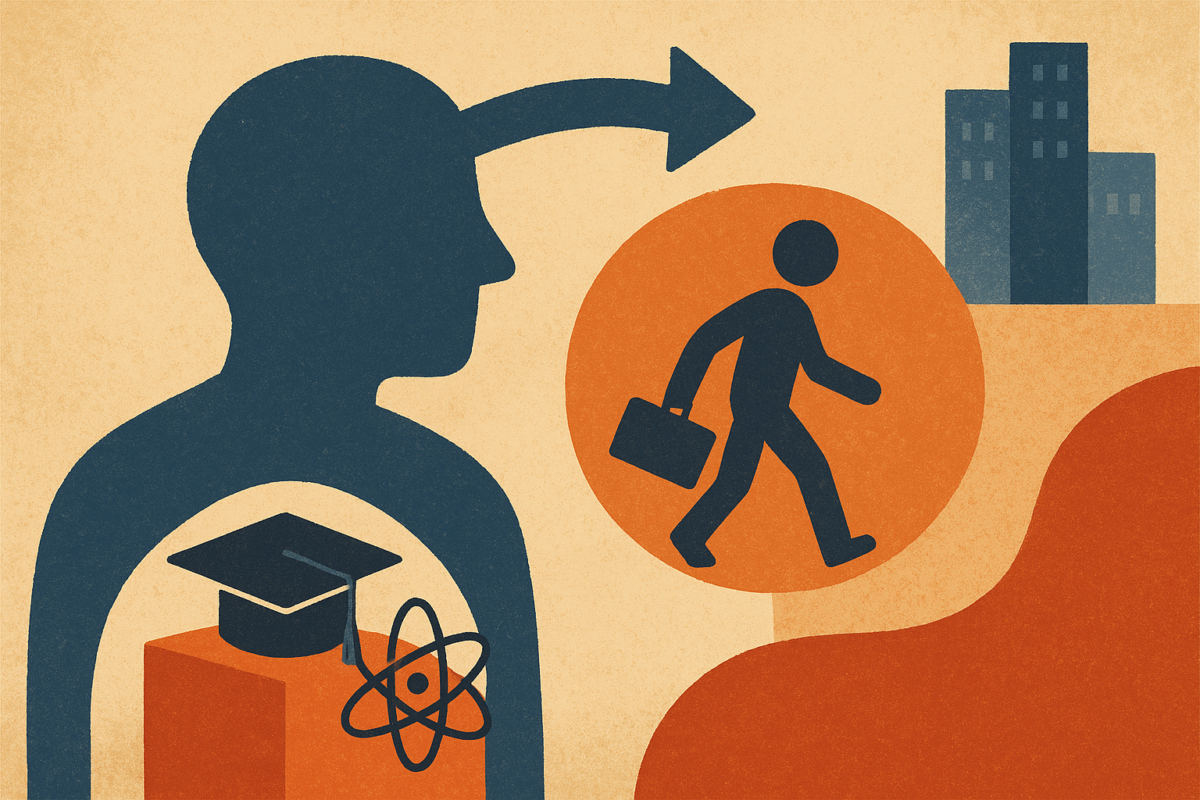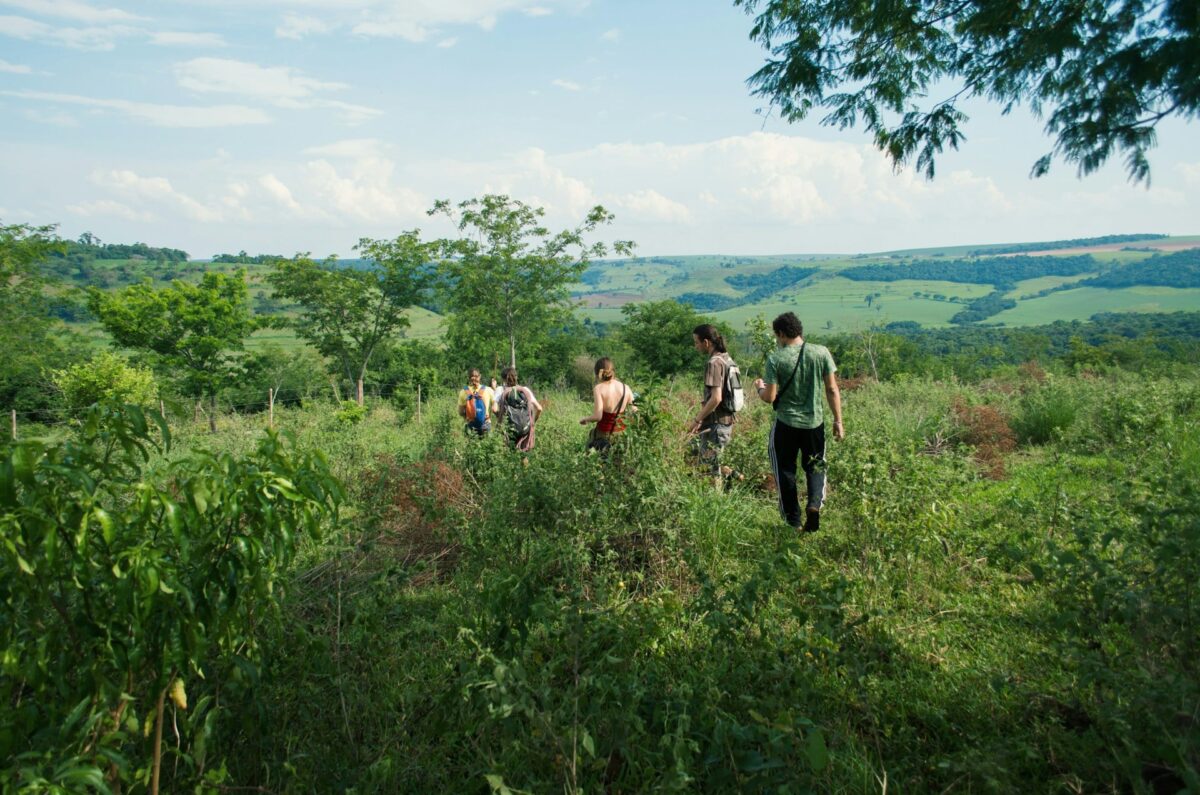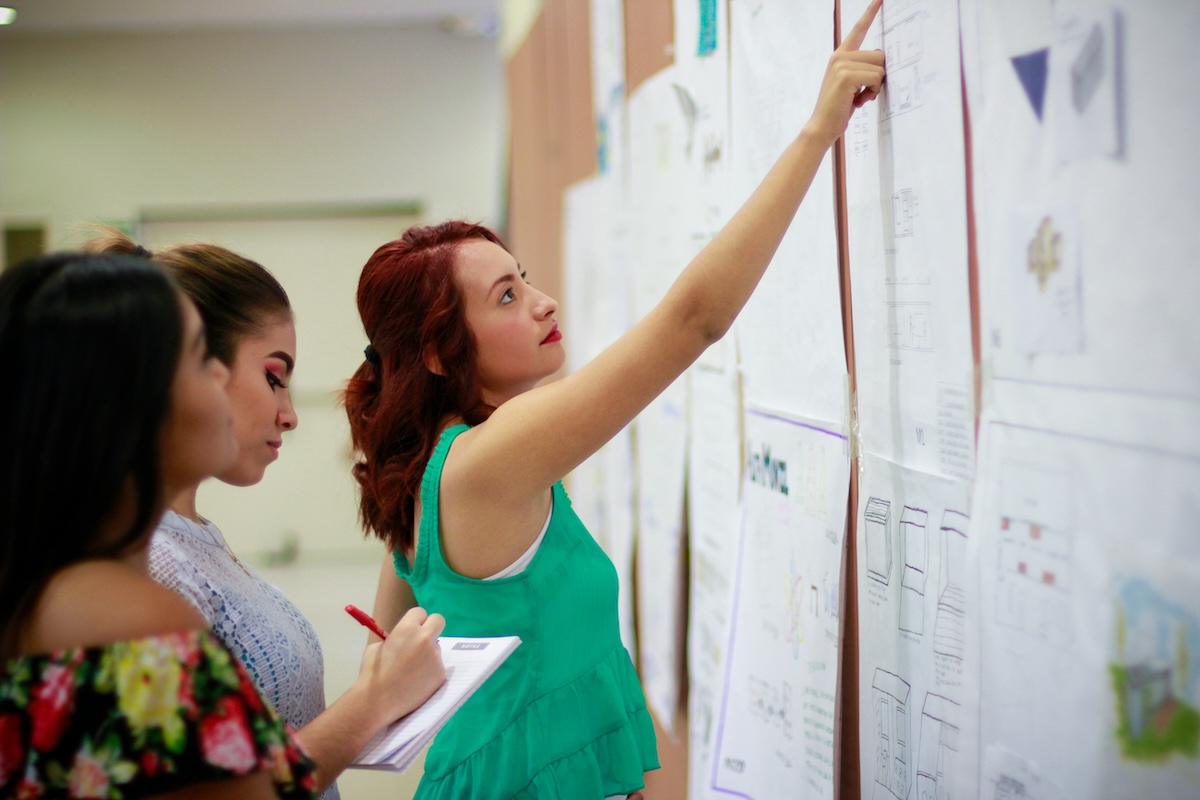 #Careers
#Careers
Psychic suffering in academia: The dilemmas faced by young researchers, and the hope that another way of seeing and living academia is possible
The challenge of building a more accommodating and inclusive academic environment, where the mental health of young researchers is prioritized
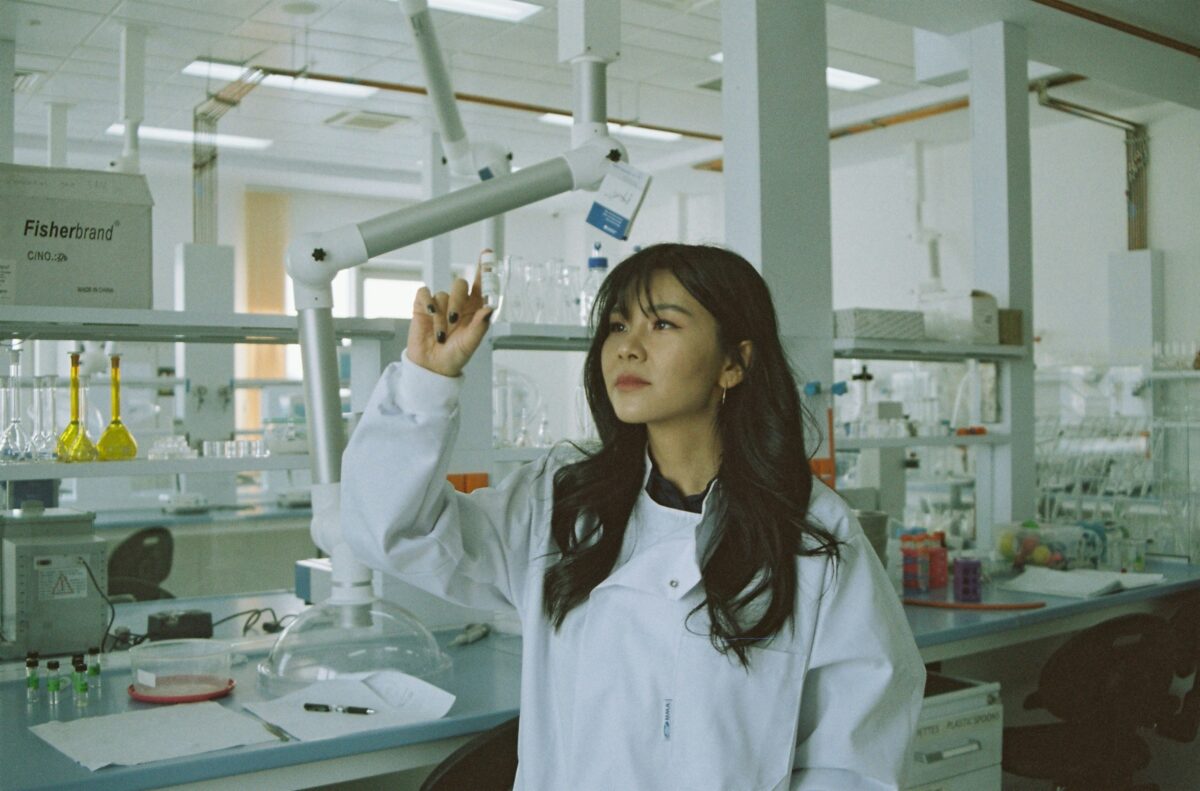 Young researchers face intense pressure within academia, from compulsion to publish to the struggle for professional recognition | Image: Diane Serik/Unsplash
Young researchers face intense pressure within academia, from compulsion to publish to the struggle for professional recognition | Image: Diane Serik/Unsplash
This is the third and last article of a series published by Science Arena, and originates from the final dissertation (TCC) submitted by Eduarda Antunes Moreira, under the advisement of professor Ricardo Whiteman Muniz, as part of the scientific journalism specialization at the Laboratory of Advanced Studies on Journalism at the University of Campinas (LABJOR-UNICAMP). Read the first and second articles of the series.
When embarking upon their graduate studies (aiming at an academic career), many young people come face-to-face with a hostile environment, normally manifesting itself in pressure to publish articles in prominent journals, in the excessive workload, and in over-the-top demands—with the potential for moral harassment (bullying) to develop.
The feeling that one has to “get into the game” and follow the rules (even when not agreeing with many of them) can overwhelm master’s and doctoral students, disenfranchising them in respect of academic and research careers.
It is neither easy nor fair to attempt to tackle a systemic problem individually.
Specialists interviewed for the article allude to the need to occupy spaces, share dissatisfactions, and join forces to build a less competitive and more accommodating academic environment.
Student participation in decision-making
According to the Law of Brazilian National Education Guidelines and Bases (LDB), and the statutes of higher education institutions, the discussion on their academic and management policies should be on the agenda of collegiate bodies with a minimum of 70% faculty staff. Administrative representatives and students can participate, but the maximum collegiate should feature professors in the majority.
Psychologist Filipe Buchmann, of the University of São Paulo’s ECOS program explains that a very relevant determining factor for developing illness at university is indeed the exclusion of students and collaborators from institutional political involvement.
“There is a certain delegitimization of potential contributions from both students and technical-administrative staff,” says Buchmann. “This is a power concentration dynamic that facilitates situations of abuse.”
Democratizing institutional deliberations is of paramount importance in the debate on the mental and physical health of graduate students and early-career researchers, says historian Heribaldo Maia, MA Phil. from the Federal University of Pernambuco (UFPE) and author of the book Neoliberalismo e sofrimento psíquico: o mal-estar nas universidades (Neoliberalism and psychological suffering: Malaise in universities).
“It is essential that professors listen to students’ needs in meetings,” observes Maia. “Another important measure is to enable them to participate in drafting calls for entry for graduate education programs.”
For Maia, actions of this type can enhance the participation of master’s, doctoral, and postdoctoral researchers in decisions that can significantly impact their careers.
It is worth remembering that gender and race disparities in universities also undermine the sense of belonging to the academic community. There is a prevalence of White male professors in Brazilian higher education. They are also a majority in the corridors of power, and the lack of diversity means that key decisions are taken by a group representing only one section of the university population.
Buchmann takes the view that the lethargy of some universities in implementing affirmative policies for Black, Brown, and Indigenous people could be interpreted as indicative of the lack of diversity on the committees of these institutions.
“Ethno-racial and socioeconomic inclusion not only stimulate the entry of more Black, Indigenous, and low-income students into universities, but also widens the diversity of issues, walks of life, and types of mental suffering that the University has to deal with,” the psychologist states.
These people often come from a completely different social reality, and enter into an institution where almost all the faculty staff are White, with practices from a world for which they have never been prepared, continues Buchmann.
This conflicting context, says Buchmann, can lead to considerable suffering and, in many cases, dropouts by students. “Based on psychological therapy with quota students, it is clear that many fall by the wayside because the institution is very hard on them, and there are not always programs to accommodate these groups.”
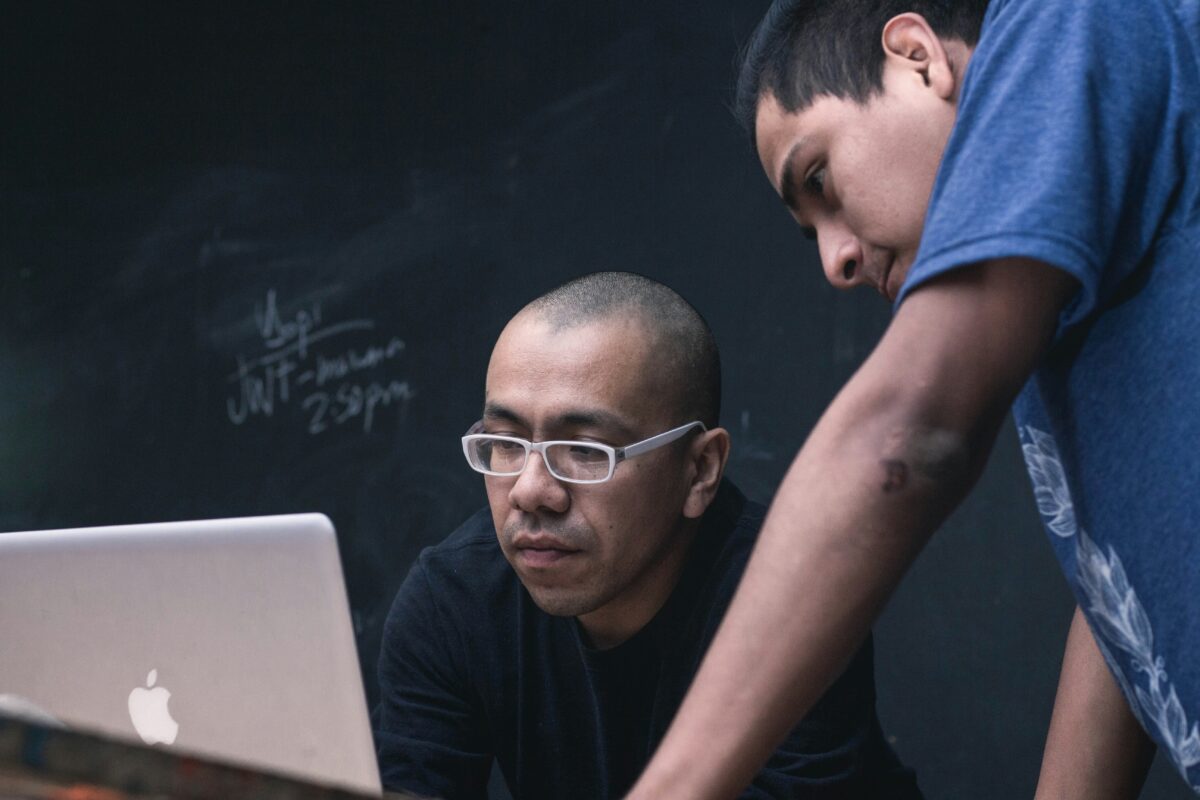
Public confidence in science
Poor representation of students and researchers in decision-making processes at universities, added to the poor visibility of research work in Brazil, is another factor that can influence the course of academic careers and shake the self-esteem of young researchers.
Academic and scientific careers have long been undervalued—and this is not exclusive to Brazil. An editorial in the journal Nature, published on April 1, warns of the strong trend in brain drain from the United States, motivated by the attacks of Donald Trump’s government on the scientific community in the country. There have been mass job losses and funding cuts across support agencies, the freezing of scholarships, and reprisals against prestigious universities, including Harvard.
Close to 75% of the 1,600 US scientists that answered a questionnaire in Nature said that they are considering leaving the USA due to the very turbulent current climate, with Europe and Canada among the main options for relocation. “A lot of the respondents are thinking about moving to countries where they have collaborators, friends, relatives, or proximity with the language,” the journal reported.
In Brazil, data published in 2024 by the Brazilian Federal Agency for Support and Evaluation of Graduate Education (CAPES) indicate that undergraduate students’ interest in pursuing an academic career is dwindling.
Between 2019 and 2022, more than 14,000 graduate education vacancies were closed, and 2022 saw the lowest number of graduate education enrollments in almost a decade.
According to CAPES, one factor that goes toward explaining the decline during the period analyzed is the COVID-19 pandemic. However, the agency acknowledges that the successive cuts and reallocations of the public research budget have broadsided the country’s capacity to put people through graduate qualifications.
In addition to the budgetary shrinkage, CAPES lists other aspects responsible for students dropping out of graduate education in recent years:
- Emotional and financial issues;
- Unsatisfactory social relationships with colleagues, professors, and employees;
- A lack of programs contributing to curricular enrichment;
- The need to work or dependence on somebody to fund their studies;
- Distance from home.
This professional derision, added to scientific misinformation and denialism, only serve to compromise public confidence in science, as suggested in a study published by the Center for University, Society, and Science Studies (SoU_Ciência) at the Federal University of São Paulo (UNIFESP).
According to the survey, 36% of the Brazilian population is unaware of what happens in public universities. The survey team interviewed 1,500 people in 2021, revealing that even among young people of potential university age (16–29 years), there is little awareness of what these institutions do (37%).
“As part of the resistance against these attacks, backward steps, and denial of science, communication today is even more pressing, especially among populations with low levels of income and schooling, and also with young people and students, to widen and democratize knowledge and access to programs and activities,” said Soraya Smaili, professor at the UNIFESP São Paulo School of Medicine and overall coordinator of SoU_Ciência.
These and other data on the public perception of science demonstrate that there also needs to be movement among the institutions themselves, to approximate once again to society and rebuild their credibility—not before first taking a look at themselves, evaluating their culture, and making the necessary adjustments.
Uncertainties about professional future
The academic career treads a unique pathway. While in other areas people graduate and then generally enter the formal employment market, academia involves a number of steps until a person is in fact considered a professional.
“This medium- and long-term career plan causes considerable mental stress,” says chemist Juliana Fedoce, a professor at the Federal University of Itajubá (UNIFEI) in Minas Gerais State.
She says that during her graduate program, her father tried to calm her with the advice: “You’re taking one step back to take two steps forward”—but it’s not that simple.
According to the report Masters and Doctors 2024, produced by the Center for Management and Strategic Studies (CGEE), the number of masters and PhDs with formal employment after two years of their postgraduation is falling, revealing a more dramatic drop in the employment rate of recently appointed PhDs.
In the case of doctorate holders, the academic areas with the highest formal employment rates 10 years after receiving their titles (in 2021) were exact and earth sciences (78.9%), with the lowest rate (67.9%) in biological sciences.
It’s very difficult to foresee or plan how or when to take those “two steps forward” mentioned by Fedoce’s father. There are not enough vacancies in public universities for all the PhDs awarded annually in Brazil.
Moreover, with a reduced number of competitive examinations (a consequence of education investment cuts and jeopardizing of higher education), many scientists wishing to become faculty staff end up spending several years on postdoctoral internships—temporary research posts of one or two years’ duration, with a scholarship grant, but no employment bond or employee rights, and with no guarantee whatsoever of being hired.
Physician Olavo Amaral, a professor at the Federal University of Rio de Janeiro (UFRJ), says the most obvious solution would be for people to go out and scour the market for jobs.
“Brazilian graduate education does not prepare young researchers to work in other sectors,” says Amaral.
Scientists find it difficult to seek opportunities outside the university environment when they have no corporate experience or even behavioral (soft) skills, or for being overqualified for certain sectors.
There are reports of postdoctoral researchers hiding stages of their qualification from their résumés in order to get a job.
Furthermore, many graduate students have no contact with other careers during their qualification, and opt for teaching due to the simple lack of information on other professional possibilities.
The CAPES report from last year suggests that to revert this low absorption of masters and PhDs by industry and the business sector (and the unattractiveness of a scientific career), there is a need for “strategies for both increased investment in research focused on development and stimulating innovation, and increased qualification of human resources for innovation, with closer liaison between the academic and business sectors.”
*
This article may be republished online under the CC-BY-NC-ND Creative Commons license.
The text must not be edited and the author(s) and source (Science Arena) must be credited.
